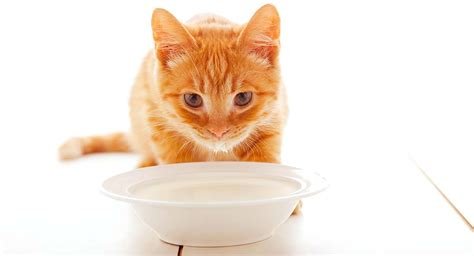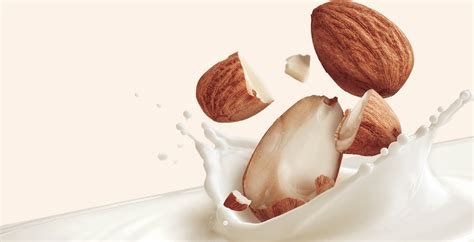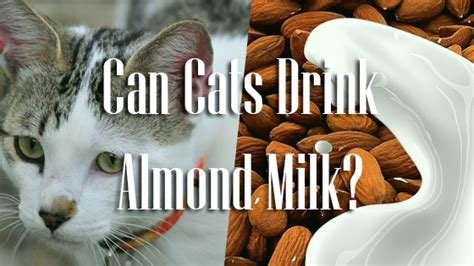About kittens
can kittens drink almond milk
can kittens drink almond milk
The Pros and Cons of Feeding Kittens Almond Milk
Question of the day is, can kittens drink almond milk? Kittens are adorable and playful creatures that bring joy and companionship to our lives. As pet owners, we want to provide them with the best care and nutrition possible. However, with the rise of alternative milk options, such as almond milk, many pet owners wonder if it is safe to feed their kittens this dairy-free alternative. In this article, we will explore the pros and cons of feeding kittens almond milk.
Firstly, let’s understand what almond milk is. Almond milk is a plant-based milk made from ground almonds and water. It is a popular alternative to cow’s milk for those who are lactose intolerant or follow a vegan diet. Almond milk is also low in calories and contains no cholesterol, making it a healthier option for humans. However, when it comes to kittens, the nutritional needs are different, and almond milk may not be the best choice.
One of the main concerns with feeding kittens almond milk is the lack of essential nutrients. Kittens require a specific balance of nutrients, including protein, fat, and vitamins, for their growth and development. Almond milk does not contain the same level of nutrients as mother’s milk or kitten formula. It is also low in protein, which is crucial for a kitten’s muscle and tissue development.

Therefore, feeding kittens almond milk as their primary source of nutrition can lead to malnourishment and health issues.Moreover, almond milk does not contain taurine, an essential amino acid that is vital for a kitten’s heart and eye health. Taurine deficiency can lead to serious health problems, including heart disease and blindness. While some almond milk brands may add taurine to their product, it is not a natural component of almond milk. Therefore, it is not a reliable source of this essential nutrient for kittens.
On the other hand, there are some potential benefits of feeding kittens almond milk. For kittens who are lactose intolerant or have a milk allergy, almond milk can be a suitable alternative. It is also easier to digest compared to cow’s milk, which can cause stomach upset in some kittens. Additionally, almond milk is low in calories, making it a good option for kittens who are overweight or obese. However, it is essential to note that almond milk should not be the sole source of nutrition for kittens and should only be given in moderation.
what to consider before giving your kitten almond milk
Another factor to consider is the potential for almond milk to cause digestive issues in kittens. While almond milk is generally safe for adult cats, kittens have more sensitive digestive systems. The high fiber content in almond milk can cause diarrhea and other gastrointestinal problems in kittens. This can lead to dehydration and other health complications, especially in young and vulnerable kittens. So, Can kittens drink almond milk?
In conclusion, while almond milk may seem like a healthy and convenient option for kittens, it is not a suitable replacement for mother’s milk or kitten formula. The lack of essential nutrients and potential for digestive issues make it an unreliable source of nutrition for growing kittens. It is always best to consult with a veterinarian before making any changes to a kitten’s diet. They can provide guidance on the appropriate nutrition for your kitten’s specific needs. As pet owners, it is our responsibility to ensure that our kittens receive the proper care and nutrition they need to thrive.
Understanding the Nutritional Needs of Kittens: Can Almond Milk Be a Substitute for Regular Milk?
Is the question about the nutrition of a kitten answered already somewhere? No! Kittens are adorable and playful creatures that bring joy and companionship to our lives. Can kittens drink almond milk and can it be integrated in their diet. As pet owners, it is our responsibility to ensure that they are well taken care of, including meeting their nutritional needs. One of the most common questions that arise when it comes to feeding kittens is whether they can drink almond milk as a substitute for regular milk. In this article, we will delve into the nutritional needs of kittens and explore whether almond milk can be a suitable alternative.
First and foremost, it is essential to understand that kittens have different nutritional requirements compared to adult cats. Just like human babies, kittens need a specific balance of nutrients to support their growth and development. The primary source of nutrition for kittens is their mother’s milk, which provides them with all the necessary nutrients, including proteins, fats, and carbohydrates. However, as kittens grow and are weaned off their mother’s milk, it is crucial to provide them with a balanced diet that meets their nutritional needs.
Regular cow’s milk is often the go-to option for many pet owners when it comes to feeding kittens. However, it is essential to note that cow’s milk is not suitable for kittens. Kittens lack the necessary enzymes to digest the lactose in cow’s milk, which can lead to digestive issues such as diarrhea. Therefore, it is not recommended to give kittens regular cow’s milk as a substitute for their mother’s milk.

This brings us to the question of whether almond milk can be a suitable alternative for kittens. Almond milk is a plant-based milk alternative that has gained popularity in recent years due to its health benefits. It is made from ground almonds and water, making it a dairy-free and lactose-free option. However, despite its popularity, almond milk may not be the best choice for kittens.
My kitten drinks almond milk (is it safe?)
One of the main concerns with feeding kittens almond milk is its lack of essential nutrients. Unlike cow’s milk, almond milk does not contain the necessary proteins and fats that kittens need for their growth and development. It also lacks other vital nutrients such as taurine, which is crucial for a kitten’s heart and eye health. Therefore, feeding kittens almond milk as a substitute for regular milk may lead to nutritional deficiencies, which can have adverse effects on their health.
Moreover, almond milk is not a natural food for kittens. As obligate carnivores, kittens require a diet that is high in animal protein. Almond milk does not provide this, and it may not be able to meet the nutritional needs of growing kittens. It is also worth noting that kittens have a small stomach capacity, and they need to consume a high-calorie diet to support their rapid growth. Almond milk is relatively low in calories, which may not be sufficient for kittens.
In addition to its lack of essential nutrients, almond milk may also pose a choking hazard for kittens. The ground almonds used to make almond milk can be difficult for kittens to digest, and they may end up choking on it. This is especially true for younger kittens who are still learning how to eat solid foods.
In conclusion, while almond milk may seem like a healthy and convenient option for humans, it is not suitable for kittens. Kittens have specific nutritional needs that must be met for their growth and development. Almond milk lacks essential nutrients and may pose a choking hazard for kittens. Therefore, it is best to stick to a balanced diet that is specifically formulated for kittens. If you have any concerns about your kitten’s diet, it is always best to consult with a veterinarian for professional advice.
Kitten Nutrition: Exploring Alternative Milk Options, Including Almond Milk
Kittens are adorable and playful creatures that bring joy and love into our lives. As pet owners, we want to provide them with the best care and nutrition to ensure their health and well-being. When it comes to their diet, we often think of traditional options such as milk. However, with the rise of alternative milk options, many pet owners wonder if kittens can drink almond milk.
Almond milk has become a popular choice for those who are lactose intolerant or looking for a dairy-free option. It is made from ground almonds and water, making it a plant-based milk alternative. While it may be suitable for humans, is it safe for kittens to consume?
The short answer is no, kittens should not drink almond milk. While it may seem like a harmless and healthy option, there are several reasons why it is not suitable for kittens.
Firstly, kittens have different nutritional needs than adult cats. They require a diet that is high in protein and fat to support their growth and development. Almond milk does not provide the necessary nutrients that kittens need, and it may even cause nutritional deficiencies. Kittens need a diet that is specifically formulated for their age and size, and almond milk does not meet these requirements.
Moreover, almond milk does not contain the essential vitamins and minerals that kittens need for their overall health. It lacks calcium, which is crucial for the development of strong bones and teeth. It also does not have enough vitamin D, which is necessary for the absorption of calcium. Without these vital nutrients, kittens may suffer from bone and teeth problems, leading to potential health issues in the future. The question pops up once more, can kittens drink almond milk?
Brief talk about Almond milk for kittens
Another concern with almond milk is that it may cause digestive issues in kittens. Kittens have sensitive stomachs, and any sudden changes in their diet can lead to stomach upset, diarrhea, and vomiting. Almond milk contains a high amount of fiber, which can be difficult for kittens to digest. It may also contain additives and sweeteners that can be harmful to their digestive system. Therefore, it is best to stick to a diet that is specifically designed for kittens to avoid any potential digestive problems.
Furthermore, almond milk may also pose a choking hazard for kittens. As they are still learning to eat and drink, they may not have the coordination to handle the thick consistency of almond milk. This can lead to choking or aspiration, which can be life-threatening for kittens. It is essential to provide them with a diet that is easy to swallow and digest to prevent any accidents.
In addition to these concerns, almond milk may also contain traces of almonds, which can be toxic to kittens. Almonds contain a substance called cyanogenic glycosides, which can be harmful to cats if consumed in large quantities. While the amount of almonds in almond milk may be minimal, it is still a risk that should not be taken with kittens.
In conclusion, while almond milk may seem like a healthy and harmless option, it is not suitable for kittens. Kittens have specific nutritional needs that almond milk cannot fulfill, and it may even cause health problems for them. It is best to stick to a diet that is specifically formulated for kittens and consult with a veterinarian before making any changes to their diet. Remember, the health and well-being of our furry friends should always be our top priority.


Pingback: what can kittens eat and drink ? Kitten Breeders | Adopt a kitten now